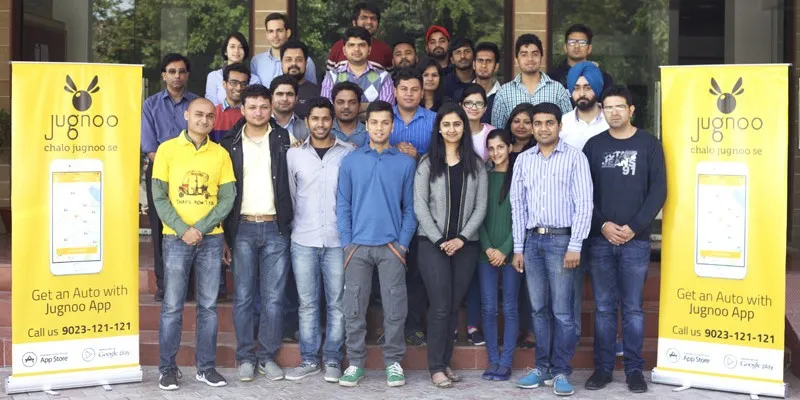Jugnoo jumps from 100K to 300K transaction within 100 days, to launch in Philippines soon
Hyperlocal has been a buzzword in the Indian startup terrain over the past 10 to 12 months. We see plenty of startups trying to solve the pain points attached to hyperlocal needs. Riding high on venture capital wealth and consumer demand, these startups are able to scale rapidly as well.

While major startups in the hyperlocal (service and product) segment are focusing on major cities in India, Jugnoo started from Chandigarh and tested the so-called “unfavorable cities” for startups in India. Now the Paytm-funded company is foraying into the global market and has chosen Philippines to be the first destination.
Samar Singla, Founder and CEO, Jugnoo, says, "We have been studying Philippines from some time and observed that on-demand services have huge potential and is the way forward there."
The company has already stationed a few employees in Philippines to foster partnerships. On what drove Jugnoo to evangelise in the global market so early in the game, Samar points out, "There is a lot of scope in this domain internationally and our traction in India tells us that we are prepared for this."
Recent acquihires will fill missing discovery quotient for Jugnoo
To spruce up the discovery quotient, besides fulfillment (which is its core focus), Jugnoo recently acquihired two content discovery companies: Bistro Offers, a restaurant discovery app and Yelo, a mobile-only services marketplace. According to our sources, the value of the acquihires were about USD one million, largely consisting of stock components.
Bistro Offers is a Chandigarh-based startup, providing a do-it-yourself platform for broadcasting offers and managing loyalty for any restaurant or a chain of restaurants. The functionalities within the app interface allow restaurant managers to build, execute and monitor customer engagement and brand loyalty campaigns. We recently featured a similar app that works across Pune.
Yelo, on the other hand, offers a peer-to-peer platform connecting users to experts needed to for any kind of job. With this platform, Jugnoo will be able to break into the market of providing on-demand talent.
From 90K transactions to 300K just within 100 days
For the Philippines launch, Jugnoo is in talks with some prominent business houses there to enter via joint venture. The company claims to grow 70 per cent on a monthly basis. It has also forayed into Gurgaon and Indore recently. Samar adds, "Indore has been a great example for us as we came a long way and learnt a lot from the experiments in our initial cities. In Indore, we were able to do 1,000 transactions in just 50 days, which took around 300 days in our first city. Gurgaon crossed 1,100 daily transactions in around 100 days. So the trend looks promising."

Jugnoo claims to process 3,00,000 requests through its platform each month. While over 2,00,000 requests are auto-bound, Meals and Fatafat contribute close to 33 per cent of the overall transactions done on the Jugnoo platform. The company claimed to close 90,000 transactions in June.
Series B is on the way
For expansion and fast scaling Samar says, “We’re in the advanced stage of raising Series B round.”
YourStory’s take
The need for on-demand and hyperlocal services is touted to bring about big opportunities in India. However, none of the startups have thought about global footprint (except Aaramshop which has presence in Pakistan).
Jugnoo’s move to expand to Philippines could be two-edged for the company. While executing the same model with a few tweaks in a market similar to India can bring quick scale and global spotlight, it could also lead to losing focus in the Indian market.
Of late, consumer-facing startups like Zomato have shown Indian startups the way to spread their wings in the global market quickly. The Gurgaon-based company has presence in 22 countries. Besides Zomato, Practo recently launched in Indonesia. Jugnoo appears to be the first hyperlocal startup to harbour global ambitions and it would be interesting to see how it rolls out in global arena.
(With inputs from Aparna Ghosh)







